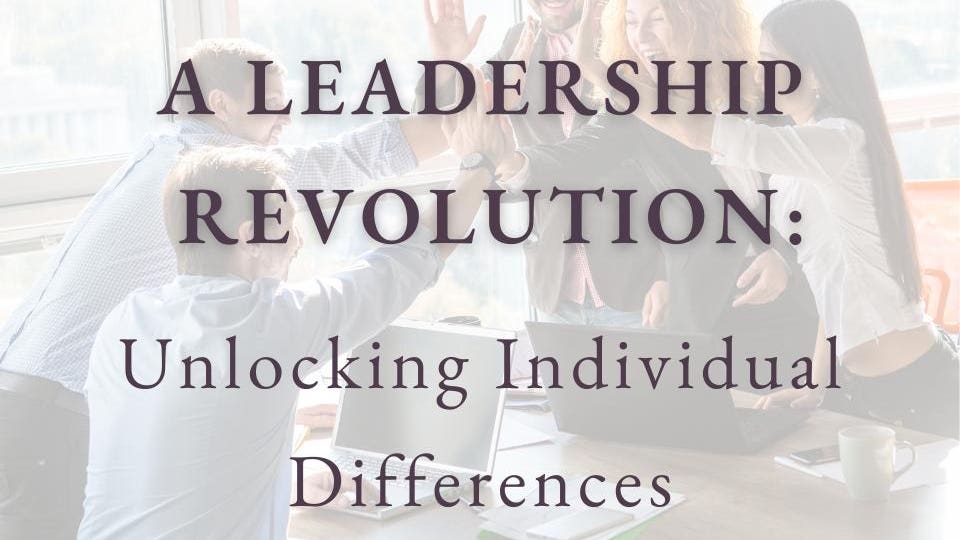In an ever-evolving world, leadership development stands as the cornerstone for cultivating visionary minds and empowering individuals to drive transformative change. The success of any mission, vision, company, or project lies within leadership and its team. It can be challenging to know how to manage or lead people effectively. A crucial factor is the individuality of each person’s profile – their strengths, weaknesses, skills and knowledge. So how do we obtain a person’s unique profile? How do we lead people in a way that best supports an organization or team?
Chief Psychologist Dr. John Mervyn-Smith collaborated with Talent Specialist Nathan Ott to create the GC Index platform. The GC Index measures a person’s Energy for Impact: the ways in which they will feel most engaged when it comes to making a contribution to the world of work. We know that when people feel most engaged, they are more likely to commit to action, develop the skill set needed for success and feel driven to realize their potential. Human beings have a drive for mastery, for feeling potent in their world, and The GC Index ‘sign-posts’ the ways in which they can do this.
The GC Index has already proved instrumental in helping many organizations and individuals to achieve positive change.
Dr. John Mervyn-Smith explains the development and mindset shift in leadership that will continue to revolutionize people and organizations across the globe.
Nell Derick Debevoise: What personal and professional experiences led you to create the GC Index?
Dr. John Mervyn-Smith: With a background in Psychology and a deep fascination with people, the GC Index wasn’t my first attempt at capturing the individual differences in people. In this instance, the focus was upon understanding people who are at the heart of transformational change in their world, people who others had labeled: ‘Game Changers’. A number of organizations, primarily in professional services, wanted to understand how to recognise and nurture this talent.
The research addressed the questions: ‘Do these individuals exist in the corporate world?’ and ‘Do they have defining characteristics?’
This was an opportunity to pursue some ‘pure’ research without any conditions attached.
Nell Derick Debevoise: How did the research evolve into a commercial tool?
Dr. John Mervyn-Smith: Following 2 years of research and data analyses, a picture emerged of ‘Game Changers’ as different in 2 key respects: a capacity for original thought; the potential basis for creative and transformational change, and an obsessive drive to turn ideas into reality.
A number of organizations, the ‘early adopters’ if you like, quickly recognised the value of being able to identify these individuals and also encouraged us to continue to research the ways in which people, generally, differed relative to these two characteristics. We knew, at that stage, that we were defining individual differences relative to Energy for Impact, and that this would have profound implications for that ways in which we understand, develop and lead talented people.
Nell Derick Debevoise: What is the puritanical mindset around one’s work-life? Does it have to be hard to be worth earning money?
Dr. John Mervyn-Smith: Let me explore this question, a key question, by offering some observations of people that I’ve talked to who consider that they have ‘Imposter syndrome’. Commonly, they will talk about enjoying their work, that it energizes them, that they find it ‘easy’ to perform well. They feel guilty that work isn’t ‘hard’ and depleting, that they don’t get home at the end of the day feeling exhausted.
Many people have a transactional view of work: that we have to justify our salary by giving something of ourselves: time and energy.
The GC Index helps people, leaders and organizations to take a transformational view of work, that far from feeling depleted by working ‘hard’, people feel energized and potent.
Nell Derick Debevoise: What would you say about the pursuit of good leadership within the industry?
Dr. John Mervyn-Smith: I’ve always been interested in talent and what makes people successful. A subset of talent is leadership. Unfortunately, the corporate world seems to have been seduced in recent decades by the notion that there is a definitive view of leadership; a defining set of characteristics. There isn’t one and this view is unhelpful when it comes to recognising and nurturing leadership talent. Our work with The GC Index tells us what common sense already suggests, namely that successful leaders lead in different ways: Bill Gates is a different leader from Elon Musk who is different again from Warren Buffet. The GC Index provides us with a framework for understanding these differences and the emerging message for aspiring leaders is this: develop your approach to leadership around your Energy for Impact rather than feel that you have to mimic someone else.
Nell Derick Debevoise: How do you think the GC Index finds resonance in today’s day and now?
Dr. John Mervyn-Smith: A common reaction from people when they first see their GC Index profile is: ‘this explains so much’. And the explanation then often gives people options in their lives, a way of thinking with clarity about the key decisions that they make, need to make: ‘Will this job/organization provide me with an opportunity to thrive or just survive?’ ‘Will this relationship be transformational or just transactional?’ ‘What do I need to do to have the impact that I want to?’
Read the full article here





